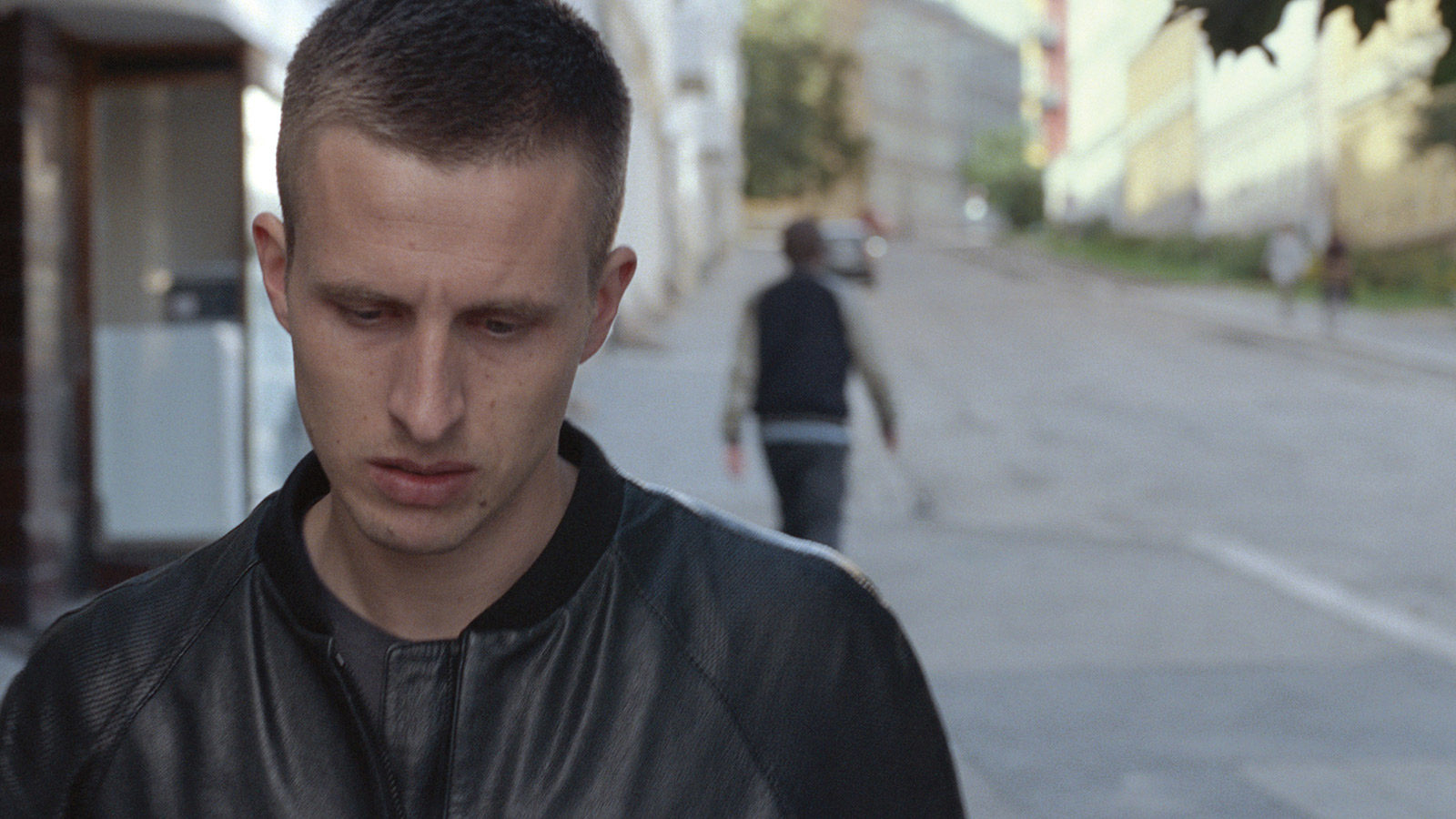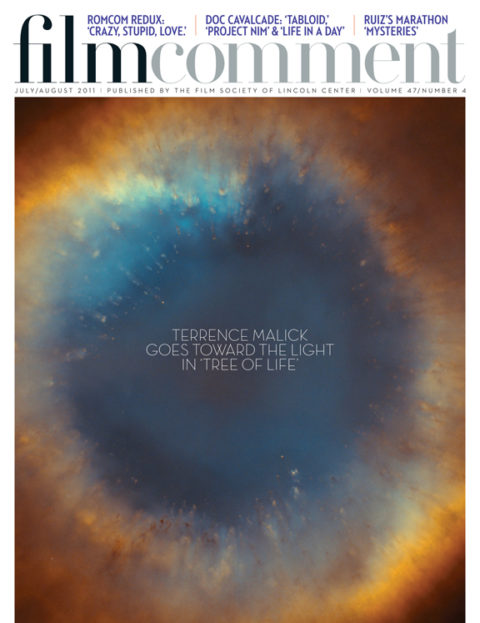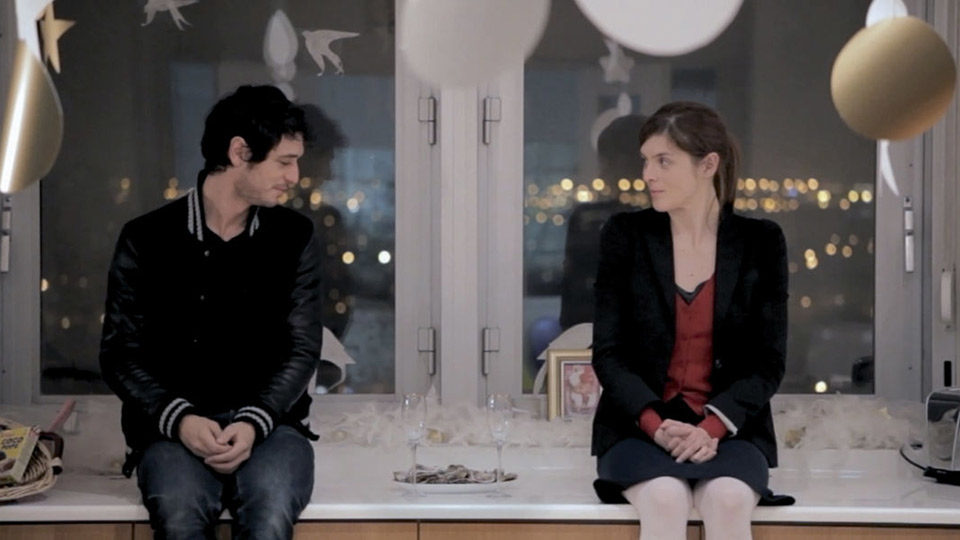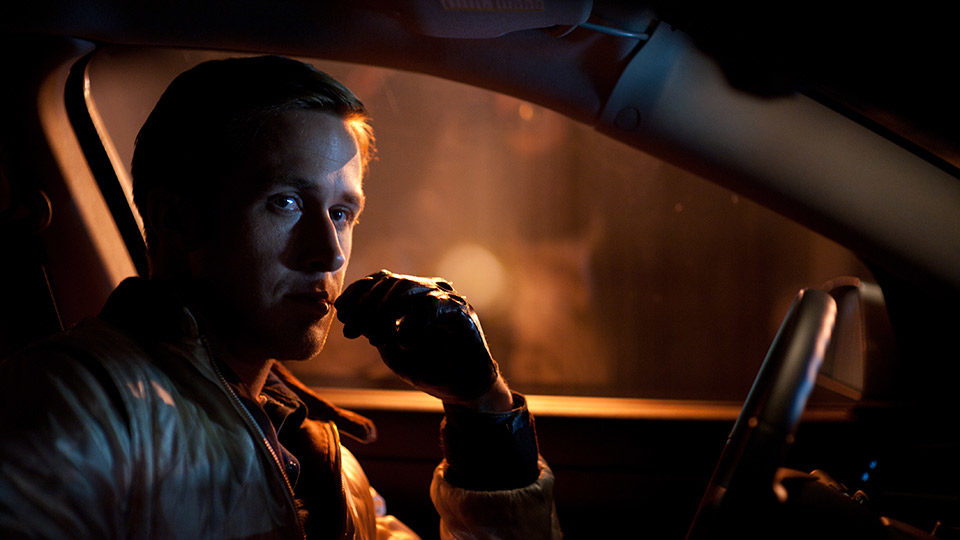
Online Exclusive: Cannes 2011
Minutes after leaving the press conference for Lars von Trier’s Melancholia, I saw a young blonde with a handmade sign that read, in English: THIS WORLD IS ANOTHER PLANET’S HELL. Was her slogan an advertisement for von Trier’s end-of-days epic? A prescient comment on the road to perdition that the Danish director would soon find himself walking for his “I’m a Nazi” remarks?

Or perhaps she was summing up the theme found in many titles that unspooled during the first several days of the festival: hell is for children. Mono-monikered Maïwenn certainly proved as much in her risible competition entry, Polisse, which inconceivably won the Jury Prize (third place, essentially). Based on real cases from the Paris Child Protection Unit, Maïwenn’s film tracks the horrific work—investigating sexual- and physical-abuse cases, apprehending kidnappers—and the disastrous personal lives of 10 CPU officers. Rounding up some of France’s finest actors, like Karin Viard and Marina Foïs, only to instruct them to screech at one another, Maïwenn assigns herself the superfluous role of Melissa, a photographer assigned to document the unit. In between plot threads involving exploited Roma children, a dropped baby, and a little girl raped by her grandfather, Melissa falls for the most deafening of the cops, played by rapper Joeystarr (one name, no space), their romance commencing during a slow jam after the officers hit the disco to celebrate the dropped baby’s survival. Bumptious from start to finish, Polisse may be the most tonally disastrous vanity project ever made.
Tuning out the noise off screen also remains a constant challenge at Cannes, a hive of unprocessed thought and jibber-jabber. Despite my best efforts to ignore second-, third-, and fourth-hand recommendations, even I succumbed to the hype machine. “Word is that it is a ‘must see,’” read an e-mail forwarded by a colleague, in which someone else was reporting what U.S. distributors in Paris had been saying about Valérie Donzelli’s Declaration of War, the opening film of Critics’ Week, celebrating its 50th year. Donzelli’s semiautobiographical second feature, which she co-wrote with co-star (and ex-boyfriend) Jérémie Elkaïm, follows a couple—too-cutely named Roméo and Juliette—whose relationship slowly unravels after their toddler son is diagnosed with a brain tumor. Although not a continuous offensive assault like Polisse, Donzelli’s film still suffers from awkward shifts in mood and tone; a musical number meant to express the unbearable agony that these young parents must endure comes off as a twee set piece that even Christophe Honoré would have nixed.

Declaration of War
Those still in diapers weren’t the only ones afflicted with brain tumors. In Gus Van Sant’s teen weepie Restless, which opened Un Certain Regard, the great Mia Wasikowska plays terminally ill Annabel, a naturalist who spends the final three months of her life in a tender romance with orphaned funeral-crasher Enoch (Henry Hopper, son of Dennis). Written by first-time screenwriter Jason Lew, a pal and former NYU classmate of co-producer Bryce Dallas Howard, Restless is drooping, shapeless emo goo, a disappointment from Van Sant, one of the best chroniclers of adolescence.
Though he’s in his thirties, Anders (Anders Danielsen Lie), the protagonist of Joachim Trier’s UCR entry Oslo, August 31st, finds himself vacillating between an adolescent appetite for destruction and a more adult acceptance of the compromises one must make in life. Nearing the end of his drug-rehab program, Anders, a once-promising writer, tries to end it all, fails, and then sets about revisiting his past—and blowing a chance for the future. As in his first feature, Reprise (06), which also starred Lie, Trier displays a gift for exposing the foibles and delusions of sad young literary men. Though Oslo is far more mournful than the earlier film, the late-summer light and settings of the title city offset the heaviness with a tiny sense of hope, even if it remains unrealized.
The lead character in Trier’s movie needs only to criss-cross the capital of Norway to make amends of a sort; in Paolo Sorrentino’s Competition howler This Must Be the Place, the protagonist must traverse most of the United States to right a grievous wrong. Sean Penn (who apparently met Sorrentino at Cannes in 2008, when the Penn-led jury gave the director’s Il Divo the Jury Prize) stars as Cheyenne, a highly affected, retired goth rocker living in Dublin who spends his days applying black toenail polish, orally pleasuring his firefighter wife of 25 years (Frances McDormand), and feeling guilty about some unclear incident involving two Irish teens who committed suicide after listening to the songs of this ersatz Robert Smith. None of it makes any sense, especially after the film becomes a story of Holocaust vengeance: fey Cheyenne is summoned back to Brooklyn for his estranged, devoutly Jewish father’s funeral and takes it upon himself to track down Dad’s tormentor in Auschwitz. Exploiting the Shoah for maximal mawkishness and deploying the laziest stereotypes about America (fatties, guns, tattooed hillbillies), Sorrentino may have been too distracted by propping up his own outrageously sentimental vision (co-written by Umberto Contarello) that he forgot to rein in Penn, showboating even more wildly than he did in I Am Sam.

Drive
Where Penn can’t shut up, Ryan Gosling is nothing but steely silence in Nicolas Winding Refn’s thrilling, taut Competition film Drive. Set in Los Angeles and opening with hot-pink credits and a blissful Moroder-meets-Scandi pop score, Refn’s expertly handled genre exercise gives off considerable heat, thanks mainly to Gosling’s foxy no-named, toothpick-chewing movie stuntman and part-time heist driver. The wheelman’s confidence reflects Refn’s own; though punctuated by several jolts of blood and gore, Drive unfolds at a leisurely, languid pace—a tempo that succeeds in making even previously sexless pixies like Carey Mulligan, playing the young mom down the hall that the Driver is sweet on, smolder. While Gosling’s character tends to keep his mouth closed, he’s surrounded by fantastically voluble supporting players, namely Ron Perlman and Albert Brooks, as thugs undone by their own hubris.
A thug undone by his own self-loathing is the basis of the tawdry, overcooked narrative of Oliver Hermanus’s Skoonheid (Beauty), which played in UCR. Living outside Cape Town, deeply closeted family man Francois (Deon Lotz) relieves his urges in a dusty, off-road crash pad, a sex shack for other middle-aged men on the down low. Francois’s dangerous-top masculinity is twinned somehow with the legacy of apartheid and the sickness of colonialism—half-baked ideas that Hermanus’s film simply can’t sustain, particularly when it falls back on shock tactics favored by lesser American queer-cinema vehicles of the mid-Nineties. Obsessed with Christian (Charlie Keegan), a law student/part-time model half his age, Francois deploys all kinds of ruses to spend time with the straight twentysomething, letting him know how he really feels by raping and pulverizing him. Skoonheid had the dubious distinction of being awarded the second annual Queer Palm (the inaugural prize went to Gregg Araki’s Kaboom last year), simply for lack of LGBT-themed competitors.
Fortunately, UCR boasted at least one excellent examination of a nation’s depravity: Gerardo Naranjo’s Miss Bala. “My dream is to represent the beautiful women of my state,” Laura (an impressive Stephanie Sigman, making her film debut) is instructed to say during her tryout for the Miss Baja California pageant (the title’s play on words translates as “Miss Bullet”). Clubbing at the wrong place at the wrong time, Laura soon becomes the captive of a drug gang; through her eyes we witness Mexico’s intractable police corruption and the country’s inexorable decay, largely the result of the insatiable demand for dope by its neighbor to the north. Yet Miss Bala isn’t a squawky, sociopolitical chest thumper: the film’s perverse humor and assured, Steadicam-shot action setpieces largely define its cool register while never once compromising its sense of despair and outrage.
Beauty can’t save Miss Bala’s heroine—and it doesn’t really buoy The Look, an inconsequential hagiographic portrait of Charlotte Rampling by Angelina Maccarone, which played in Cannes Classics. “I was put into movies because I was beautiful,” the 65-year-old legend announces offhandedly, one of many self-evident declarations (another: “Performing is a fantastic way of communicating”). Billed as a “self-portrait through others,” The Look mostly consists of the sounds of one desultory, vapid conversation after another: Rampling kibitzes politely with Juergen Teller and Paul Auster, vaguely discussing art, careers, and aging. Maccarone’s documentary does capture a few odd, spontaneous moments, such as Rampling chatting up a group of old coots in a Paris park, one of whom she agrees to smooch. It’s a surprising instance of compliance from a performer whose key to self-preservation has been to “find a way that you are not invaded all the time.” Rampling’s instincts clearly served her well: memorably playing Kirsten Dunst and Charlotte Gainsbourg’s tetchy, boozy mother in Melancholia, the actress was noticeably absent at the von Trier press conference. Perhaps she sensed the hell that event would become.







